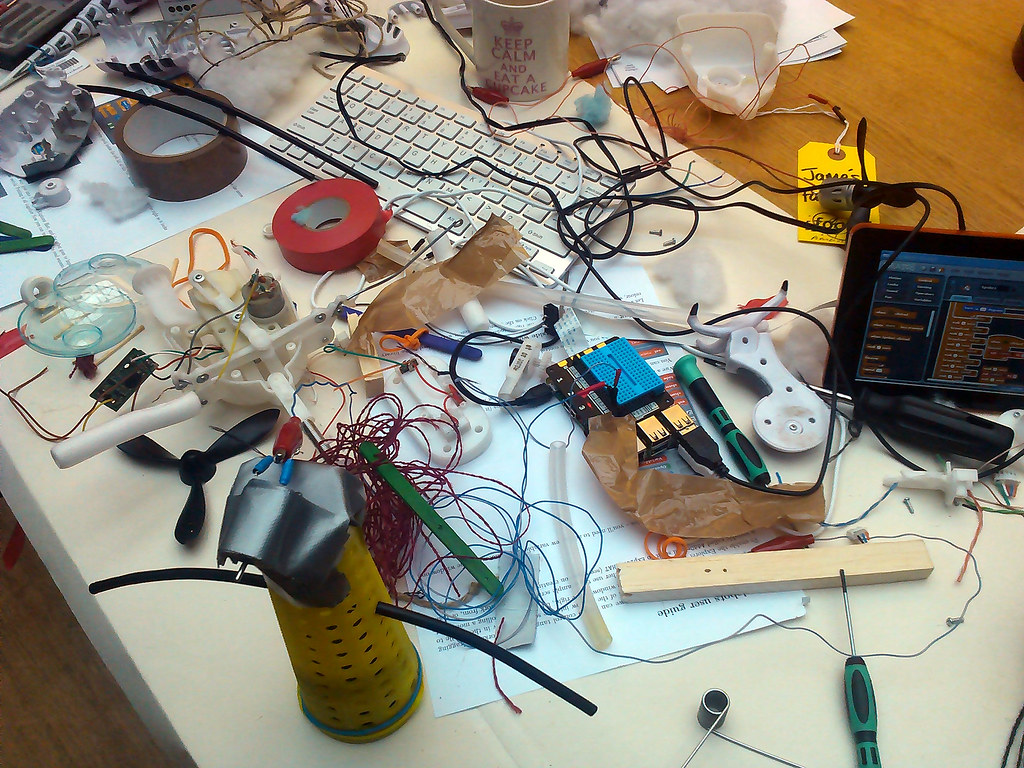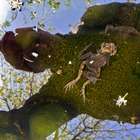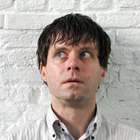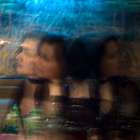FoAM digest - Spring 02017
Posted April 6, 2017 by Nik Gaffney, Theun Karelse, Alkan Chipperfield, and Maja KuzmanovićDear friends, comrades and dispersed kinfolk,
The budding energy of early spring enticed us to bring out some vital news from across the FoAM network. The last year has been turbulent both within the microcosms of our studios and in the macrocosms around us. This has only strengthened our determination to continue evolving our network as a distributed, anti-fragile entity. In this aperiodic digest we weave together the threads of the various activities that our nodes are currently engaged in towards that end.
Inhabiting uncertainty
Creative approaches to uncertainty are becoming increasingly relevant, from consciously inhabiting liminal states of transition to discerning reliable sources of information. In the article Enacting Futures in Postnormal Times you can find out why we think that working with futures is particularly relevant in periods of social and environmental turbulence. Maja Kuzmanovic will elaborate on (experiential) futures and uncertainty in her keynote speech for the Anticipation Conference in November.
Futures emerge from actions and decisions taken today. Yet making informed decisions is becoming increasingly complicated. Concerned with the proliferation of questionable news, FoAM Kernow launched AccessLab, an initiative that seeks to improve access and enable critical evaluation of information. AccessLab encourages participants to develop generalisable capabilities to find reliable information on any topic of interest. The next workshop – focused on scientific information – is planned for the end of May. If you are an artist and/or scientist interested in getting involved, the call for participation is open for a few more weeks.
Another way to approach uncertainty is learning to consciously attend to the present, becoming intimately acquainted with the continuous processes of change and impermanence. During the lunar Year of the Monkey, FoAM bxl held an organisation-wide sabbatical or collective transiency. We carved out time and space for the core team to consciously inhabit their individual and collective transitions. A tangible reflection of this often intangible process was Stillness, a multisensory event and a book of photographs. The limited edition of the book is now available worldwide through MER.Paper Kunsthalle and Anagram Books.
Practicing ecology with an ecology of practices
Political upheavals, economic and cultural crises can fuel an uneasy sense of urgency. Yet in the long term, the most fundamental uncertainty is environmental. It is far from certain how the biosphere can continue to sustain life as we know it. At FoAM we approach environmental uncertainty through an "ecology of practices" that explore changing relationships between human and non-human worlds. We began our inquiry at the turn of the millennium with groWorld – our long-term initiative at the intersections of culture, gardening and technology. We encapsulated over a decade of groWorld experiments in the article Vegetal Culture – which took three years of "slow publishing" to eventually appear in issue 9 of The Fourth Door Review.
Investigations into the evolutionary relationships between animals and their environment are conducted at FoAM Kernow, most recently with Crab Camouflage. Taking a bird's eye view, we use remote sensing to model cities without roads and buildings, visualising connectivity (or lack thereof) between urban green spaces. We embark on Sonic Kayaks to compose with the sea while gathering environmental data. We zoom in to the microscopic by combining virology and basket weaving, pottery and genetics, to reach a tangible understanding of how genes change the structure and infectiousness of viruses. The next VirusCraft workshop will take place at the end of April in Falmouth, and all are welcome.
With Machine Wilderness FoAM A'dam takes a further speculative step by asking what technology would look like if it related to landscapes in the ways organisms do. We examined urban infrastructure from the perspective of non-human inhabitants. We designed symbiotic systems, empathic environmental technologies and even prototyped systems to communicate with crows. You can find out more about Machine Wilderness in an inspiring interview with Theun Karelse on WMMA.
Foodscapes
The complexity of today's environmental and social relationships – as reflected in convoluted transnational food systems – calls for a pause to consider all the ways in which "we are what we eat". Efforts to promote sustainable farming practices continue at FoAM Kernow with a brand new version of the Farm Crap App https://fo.am/farm-crap-app/, especially designed for allotments. http://fo.am/blog/2016/12/14/allotment-crap-app/ In the coming months we will be incorporating new features and extending old ones, including information about nutrients, additional crop and soil types, farm maps and much more. Anna-Maria Orru of FoAM Nordica envisions not just farms but whole cities as foodscapes. She explores ways of instigating agency among urban inhabitants, changing behaviours, reframing thought patterns and creating (edible) zones of deep commitment.
Commitment and awareness of food is best fostered from an early age. Rasa Alksnyte has been cooking up art in Brussels' school kitchens, encouraging children to experiment with slow cooking and photography, human-plant interactions and food waste. Across the continent in Malta, FoAM bxl takes food as a manifestation of (European) diversity. In Tasting Tomorrow, a series of futuring workshops and public events, we bring together Maltese food experts and enthusiasts to find possible answers to the question, "What could thriving food cultures in Malta look like?" If you happen to be in Rabat in the beginning of May, come and taste our edible prototypes at the opening of the Archived Futures Harvest exhibition.
Hosting, hacking, moving
Food remains central to FoAM's unique hosting culture – a symbol of our reciprocal relationship with the environment as well as an important social glue. Yet there's more than food at the heart of our hosting. The hospitality of our members in each of the studios has become one of the hallmarks of FoAM. To explore how to transform this intrinsic capacity for hosting into a community of practice, we organised a series of exploratory gatherings at FoAM bxl, an experiment which continues during 2017 with a working group on integrative process facilitation. If you are ever in need of process facilitators with a penchant for collective transitions and transformations, experimental and experience design, systemic change and multistakeholder dialogue, don't hesitate to contact us.
One of our most successful long-form facilitation projects has been Marine CoLABoration. The first phase of the project culminated in a public event in March, The Ocean Connects Us. You can read about how we designed this initiative in our recent article, A Lab Approach for Marine CoLABoration.
Hosting at FoAM can take many shapes, often involving hands-on making, hacking and prototyping. FoAM Kernow's Tanglebots workshop is an excellent example. Tanglebots introduces children and their families to weaving, robotics and coding by creating prototype robots that attempt to weave, but usually end up making tangles instead.
Making and unmaking are the themes of the Festival of Algorithmic and Mechanical Movement (AlgoMech for short), the inaugural activity of FoAM's embrionic studio in Sheffield. AlgoMech explores movement through digital and/or mechanical technologies. This new festival brings together a diverse range of art forms, mixing them up to present a creative mosaic of machines, live coding, music, dancing and power tools. The next edition will be held in November 2017, where we look at creative ways of taking things apart – with a sideways glance to the mythological figure of Penelope and her use of unmaking (in particular, unweaving) as a form of resistance. Watch our feeds for more information about this festival in the coming months!
With mythical threads of making and unmaking we draw this digest to a close. If any of the above captures your interest, raises questions or entices you to meet and discuss things further, we'd be delighted to hear from you. You can find us on twitter @_foam, through our website, in person at a public event, or in one of our studios.
We're currently based in Falmouth, Amsterdam, Brussels, Sheffield and Gothenburg. FoAM Kernow and A'dam are well-established studios with a wide range of activities to get involved with. FoAM Bxl is in transition from a structurally funded arts-lab to becoming a nimble collective, with occasional appearances in artistic establishments and non-urban environments. FoAM Nordica is currently in hibernation while Anna-Maria Orru completes her PhD (though there are rumours that she is establishing a new foothold in Pietrasanta, Italy). FoAM Kernow has a new offshoot – FoAM Sheffield, under the auspices of Alex McLean. Meanwhile FoAM's co-founders, Nik Gaffney and Maja Kuzmanovic, are forming FoAM.earth: a translocal nomadic entity as an experiment in working and living between geographic borders and national identities. Like the guild journeyers of old, FoAM.earth will permute contexts and cultures – researching and inhabiting, inspiring and enabling, connecting and cross-pollinating, spawning new (temporary) nodes of the FoAM network along the way. You can expect to hear more about our nomadic adventures in the next digests, or spot us as we drift past your environs.
Whether we come to you or you come to us, we hope that our paths will cross somewhere soon. Until then, we wish you a verdant, warm and energising spring (or an abundant autumn for those in the Southern Hemisphere)
Previous digests can be found at tinyletter and you can also subscribe to future updates.
Created: 15 Jul 2021 / Updated: 23 Oct 2021


















